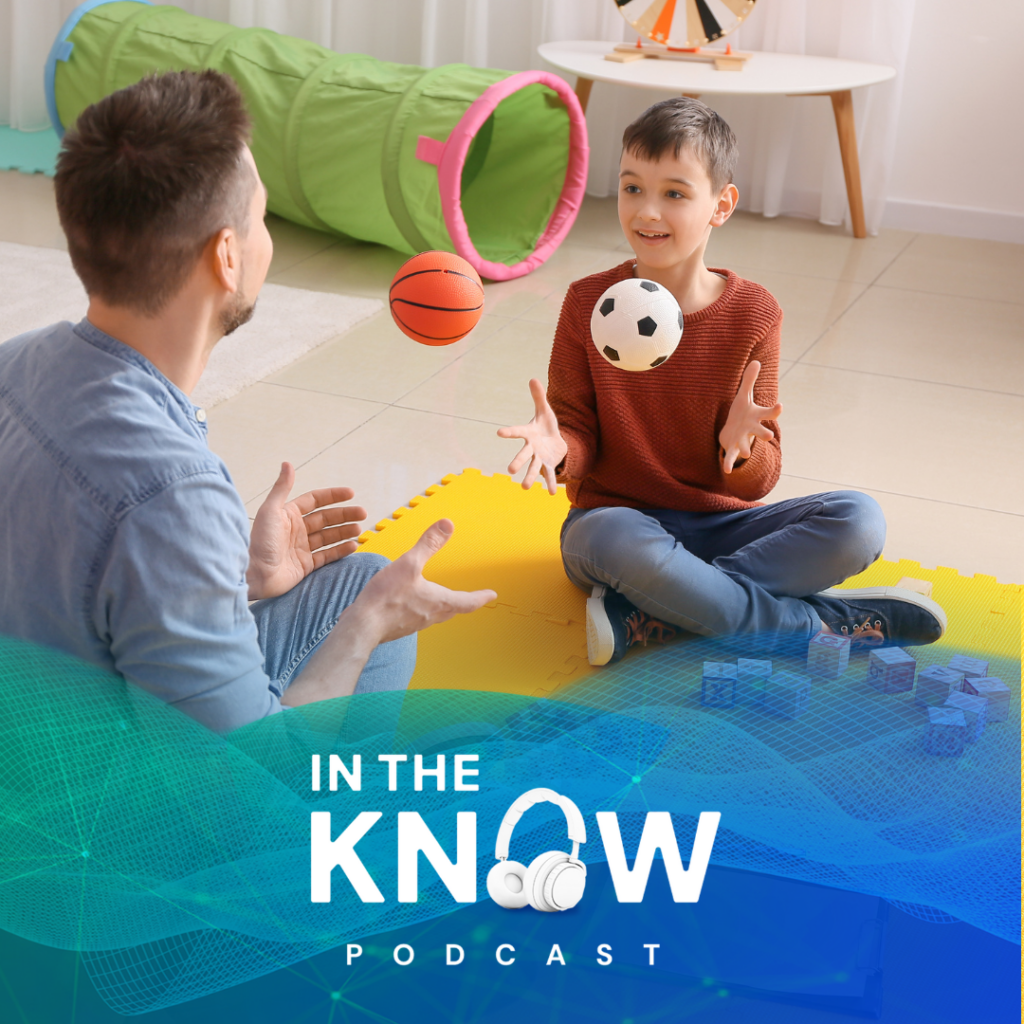As the parent of a child with autism or other developmental differences, the process of getting their child into the school system can be confusing and challenging. For many families, the biggest question about getting their young child into school is, where do we even start?
In the latest episode of the “In the Know” podcast, Mariann Crincoli, Esq, attorney who specializes in special education, talks in detail about the entire process of working with the local public school system to make sure every child receives the educational support they need and deserve.
One bit of advice that Ms. Crincoli offers to families is to act early, by getting in contact with the local school district (or with the local early intervention program for preschool children) as soon as one’s child begins to show signs of developmental differences that are likely to impact their education in any way.
“When a parent suspects a child has a learning difference or a disability, it usually is incumbent upon them to share it with the school district if it is impacting the child educationally,” she says. “And education is a broad concept. It doesn’t just include academics. It includes whatever skill a child requires in order to be a functioning member of the school community and beyond. It could be behavioral, it could be academic, it could be social, it could be emotional, it could be toileting skills. It really is whatever skills a child requires.”
Ms. Crincoli also spells out, step by step, what happens after the family makes first contact with the child study team at the local school district.
This wide-ranging conversation includes the typical timing of how soon evaluations and planning meetings happen, the three criteria that a child must meet to be eligible for special education under the law called IDEA (the Individuals with Disabilities in Education Act), and what rights and supports a family is entitled to within the public school system.
For parents facing the prospect of a child going to school soon, or whose child is already in school but needs additional support, this podcast is a useful how-to guide for talking with the school district, reviewing and agreeing on an IEP (individualized education plan) for your child, and working with the school district to set and monitor educational goals over time.
This podcast can also be useful to clinicians, as it discusses the ways that pediatricians, child psychologists and psychiatrists, and others involved in the child’s care can help inform and help guide this process.
Ms. Crincoli brings to this conversation her 30 years of legal experience, including more than 20 years working on educational law matters. She is a partner at the law firm Sussan, Greenwald, and Wesler, whose goal she describes as to “advocate for those children to obtain appropriate supports and services from their local public school districts so that they can appropriately access their education and make meaningful educational progress,” which is a goal that every family has a right to, whether or not they decide to work with an attorney.
Ms. Crincoli also talks about the role that legal counsel can serve in helping the child receive the educational services and supports they need.
In many cases, parents and educators are in agreement about the types of supports that the child requires, and the educational goals that they hope the child will achieve. In those cases, Ms. Crincoli says, an attorney “is not required. There’s no law that mandates that parents retain law firms to assist them.”
However, in cases in which the parents and the school district do not agree on the necessary supports, or when parents have the resources to get additional help navigating the system, legal help may be needed to help reach agreement between all parties involved.
Overall, working with a school district can be a cooperative and productive relationship, although it does require effort on the part of the parents.
As Ms. Crincoli advises, “My advice is to educate yourself, familiarize yourself with the special education process. Be transparent about the needs of your child and what you are seeing at home. Communicate, memorialize your conversations with school district staff in writing. If your child is struggling with homework, don’t immediately run to get tutors. Talk to the teacher and talk to the administrators if you really think your child is struggling educationally.”
One of the most important elements is communication, and to always talk with the school about what is going on with your child, and remember that every child is entitled to an appropriate education. It is every family’s right to get their child the education and supports that they deserve.
Episode Outline:
00:00 Introduction and Overview of Special Education Law
03:25 When to Share Concerns with the School District
07:05 Understanding the Three-Pronged Test for Eligibility
16:09 Advice for Parents and Clinicians in Navigating the Process
23:40 Monitoring Progress and Reevaluating IEPs
31:39 The Role of Clinicians in Advocating for Children
35:00 School Districts’ Obligation to Identify and Evaluate Children
For more of this insight-filled conversation, listen on the player above, or find “In the Know, Presented by Cognoa” on your favorite podcast platform, such as Apple Podcasts, Spotify, Podbean, and others.
In the Know regularly features conversations with top experts in behavioral and developmental health to provide information and insights for clinicians and for families of children with developmental differences.
Be sure to subscribe so you can be sure to catch the future episodes when they are available!



